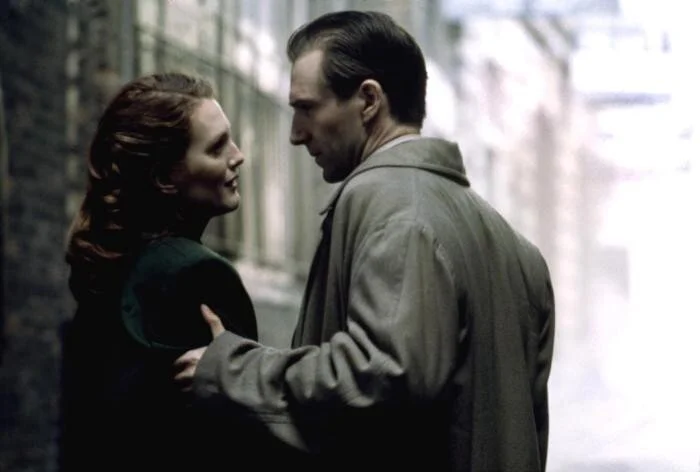The Genealogies of Modernity Journal
Human Rights and Humanity in “The Phoenician Scheme”
Here in the middle of these muted colors and fantastical plot is an observation straight out of Hannah Arendt.
Elizabeth Stice on philosophy in Wes Anderson
Cats, Lost and Found
For more seasoned readers, these chapters also uncover the feline motifs that, like medieval marginalia, are everywhere on the edges of this history but have mostly escaped notice until now.
Caroline Hovanec reviews Marx for Cats
Living with our Terminal Diagnosis
Contentment requires that one appreciate the good things in life.... We should view reality with a loving, contemplative gaze, as if we were looking at the Rowan Tree.
Xavier Symons reviews the film Living as an antidote to modern malaise
Ruled by Different Rhythms
The way to break the vicious cycle of Fascism and Anti-Fascism… is to embrace a more personalistic conception of the state which sees in the individual a meeting place of relationships of every kind.
Matthew Scarince on Christ Stopped at Eboli
The Occupation That Never Ended
Del Noce supplies a crucial element lacking in the filmmaker: a transcendental perspective from which to begin the work of restoring life to society and the political community.
Matthew Scarince on The Crisis of Modernity and Francesco Rosi’s Salvatore Giuliano
Severance: of Body and Soul
If you give your soul to the enterprise, for the sake of your desire to live a meaningful life beyond its reach, you might be rewarded with the blessing of forgetting that such a life was ever possible.
Daniel Cunningham on the neoliberal wager
The Tragic and Triumphant in Skyfall and Maverick
Both films concede that technology shapes the future, but the determining factor in the life of heroes and of nations still seems to be not the gun or the plane, but the person behind the trigger.
Lauren Spohn on heroes and technological determinism
Top Gun, James Bond, and the Myth of Obsolete Heroes
Both Maverick and Skyfall encourage us to read the life of the nation in the life of the hero... When we talk about the course of the hero’s life, we’re also talking about history.
Lauren Spohn reflects on similarities between James Bond and Maverick
The Deep Eighteenth Century
It is this backward glance, careful and sustained, at who we used to be, that will give us back the image of who we are now and what possibilities the future might hold.
Kirsten Hall considers the appeal of the 18th century and “2001: A Space Odyssey”
Contemplatives in Conversation on Cinema
Pier Paolo Pasolini’s film The Gospel According to St. Matthew presented Jesus in a uniquely modern way. Pasolini was an atheist, and his film didn’t glorify or sentimentalize the story of Jesus.
Arthur Aghajanian and Michael Marciel in conversation
Converting Conversions
If we are open to other readings of this multi-layered love story, we can discover new elements of what it means to “fall into faith as one falls in love.”
Casie Dodd assesses a second film version of Graham Greene’s The End of the Affair
Conversions on the Page and on the Screen
Adapting the Greene’s “The End of the Affair,” these films show the many ways conversion can play out in a modern culture often inhospitable to the human capacity for faith.
Casie Dodd on religious conversions in movies that happen to mention Catholicism
Action Movies and the Ethics of Climate Malthusianism
Three recent action films—Kingsman: Secret Service, Avengers: Infinity War, and Tenet—face down climate change by pointing to a supposedly new threat: a new crop of Malthusians, out to exterminate parts of the human race for the greater good.
Brice Ezell on the persistence of a bad idea.
The Happening: Modernity and the Event
This absurdity is at the heart of what makes the film profound. “The Happening” depicts our impaired ability to grapple with that which fails to make logical, rational sense.
Katherine Kurtz watches the The Happening for guidance in 2020.
Finding Light in the Modern: Terrence Malick’s A Hidden Life
Franz kneels before the priest. It is nighttime and the cell is utterly dark save for one luminous candle. This is the light that shines in the darkness. And the darkness cannot overcome it.
Jeffrey Wald examines the power of cinema in the modern world.
The Case for Theatricality
Early modern communities faced an identity crisis in which their very beings seemed constantly at-risk and in-flux. Antitheatricalists believed theater made these problems worse by turning them into a spectacle.
Krystal Marsh compares 17th Century Theater to 21st Century Comedy Central.
The Comic Turn in Period Dramas: A Review of Autumn de Wilde’s Emma
Kirsten Hall reviews the newest version of Emma and questions different ways of using humor.
Modern Love
Kirsten Hall explores the components of modern romance from Samuel Johnson to Noah Baumbach.
Teaching with Anachronism
Kirsten Hall addresses problems with pedagogy in today’s classrooms and creates a genealogical syllabus.























